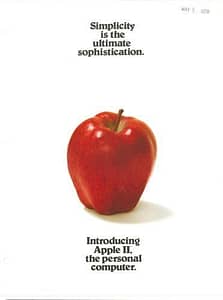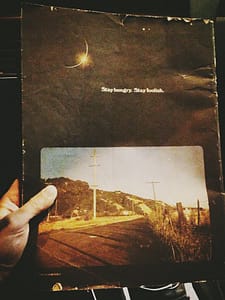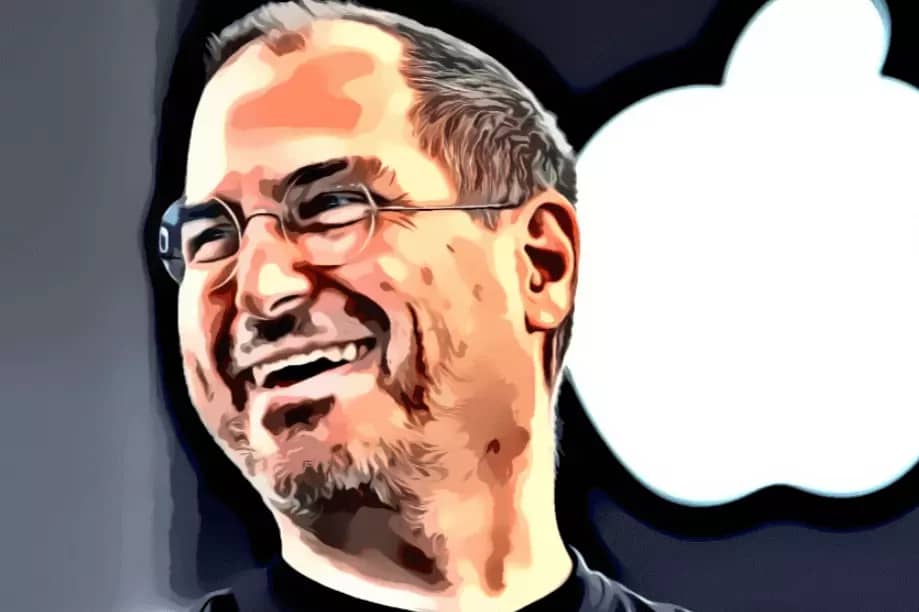Last Updated on March, 2023 by Edison
Steve Jobs was often a jerk to his employees. He would be rude and give soul-crushing criticism to them. And made mistakes that probably cost him his life.
However, he founded a company that is now worth $2.4 Trillion.
So here’s what we can learn from him:
1. Focus
When Steve Jobs returned to Apple in 1997, he was looking at too many teams working for Mac, and each of them had a different point of view.
After a few weeks of reviewing products, he had enough.
“Stop,” he shouted. “This is crazy.” Then he drew a four-quadrat product grid.
On the two columns, he wrote “Consumer” and “Pro,” and on the two rows wrote “Desktop” and “Portable.”
| Consumer | Professional | |
| Desktop | iMac | Power Macintosh G3 |
| Portable | iBook | Powerbook G3 |
Deciding what not to do is as important as choosing what to do.
He instructed his team to concentrate on only these four products and to cut producing everything else.
Steve Jobs had the focus ingrained in his personality.
He would filter out all he considered distractions. Sometimes even if it’s family members or companions.
Focus on the primary products that your firm offers and get rid of the rest.
2. Simplify
Steve Jobs focused on simplifying things by zeroing in on their essence and eliminating unnecessary components.

The first Apple advertising brochure was the sentence, “Simplicity is the ultimate sophistication.
In December 1979, Steve Jobs and his team visited the Xerox PARC center.
Xerox showed its technology, but Jobs was fascinated by the three-button computer mouse.
He was impressed by it. He was also surprised at how it’s possible not to take advantage of this tool.


The issue was that it cost $300.
He talked with the industrial designer Dean Hovey, who removed the two buttons, and the final cost was $15.
It takes lots of work and creativity to turn an expensive, complicated-to-use instrument into a simple product that everyone can use it.
Jobs aimed for the simplicity that comes from conquering rather than ignoring complexity.
To reach this simplicity, you need to understand all the fundamental challenges and come up with a better result.
3. Bend your reality
One of Jobs’s most remarkable abilities was to encourage people to do the impossible.
A perfect example is when Jobs was working on the night shift at Atari, encouraging Steven Wozniak to make a game called Breakout.
Wozniak said it would take months, but Jobs insisted on doing it in 4 days. Woz knew it was impossible but still did it.
People who worked with him agree that his trait, as irritating as it might be, led them to create outstanding products.
Steve Jobs always felt that ordinary rules of life didn’t apply to him.
He was able to inspire his team to change the course of technology with minimal resources compared with what IBM and Xerox had.
4. Push for perfection
For every product that Apple made, Steve would always pause for a moment to examine if the product needed improvement.
It even happened with the animated movie Toy Story.
Jeff Katzenberg (from Disney), who had acquired the rights to the movie, said the Pixar team to make it edgier and darker.
Steve Jobs and John Lasseter(the director) stopped the production and edited the story to make it friendlier.
It still happened when he would open the first Apple store. He didn’t like the tiles, so he demanded all be taken out and replaced.
5. Shun the majority
Steve Jobs would avoid doing market research to determine what consumers prefer.
He said: “Consumers don’t know what they want until we’ve shown them.”
It goes with the famous statement from Henry Ford: “If I had asked customers what they wanted, they would reply, A faster horse.”
Jobs had a sense of empathy for his customers, and he used intuition to figure out the desires that had not yet formed.
6. Meet face to face
It is easy to avoid meeting people in the high technology era and think that ideas come from the online world.
Jobs had a firm belief that creativity comes from casual meetings or random conversations.
When you talk to someone, you can explore different ideas and problems and even find solutions.
7. Stay hungry, stay foolish
It is a quote placed on the back cover of The Whole Earth Catalog in 1974.

Stay hungry means never stopping seeking knowledge. Never stop searching for the next big thing. It would be best if you were adaptable to the change.
Steve Jobs had made millions and had signed his name in the history of technology. But, he had a burning, persistent desire never to stop challenging himself to go further.
Stay foolish means to dare to make big decisions even if they contradict society or industry.
8. Passion
You have to have a passion for what you are doing.
The reason is that it is so hard that if you don’t, any rational person will give up when faced with difficulties.
If you don’t love it. If you don’t have fun doing it. You will give up.
That’s what happens to most people.
You have to love it. You have to have passion.
9. Conviction
It was 1983, and April was looking for a new CEO. A great candidate was John Sculley – the youngest president of Pepsi.
He knew very little about technology, but his experience in the business world and his marketing skills made him stand out. After meeting Jobs, he told him, “I have been thinking about it a lot, and I’m not coming to Apple. I’m going to stay here on the East Coast doing what I’m doing. I will be an adviser for free; let’s just be friends but I’m not coming to Apple.”
Jobs got closer to him and said the famous line, “do you want to sell sugar water for the rest of your life, or do you want to come with me and change the world?”
One week later, he became the CEO of Apple.
John could have worked for companies bigger than Apple for a much bigger salary, yet that sentence changed his mind. He said, “I just gulped because I knew I would wonder for the rest of my life, you know what I would have missed.”


